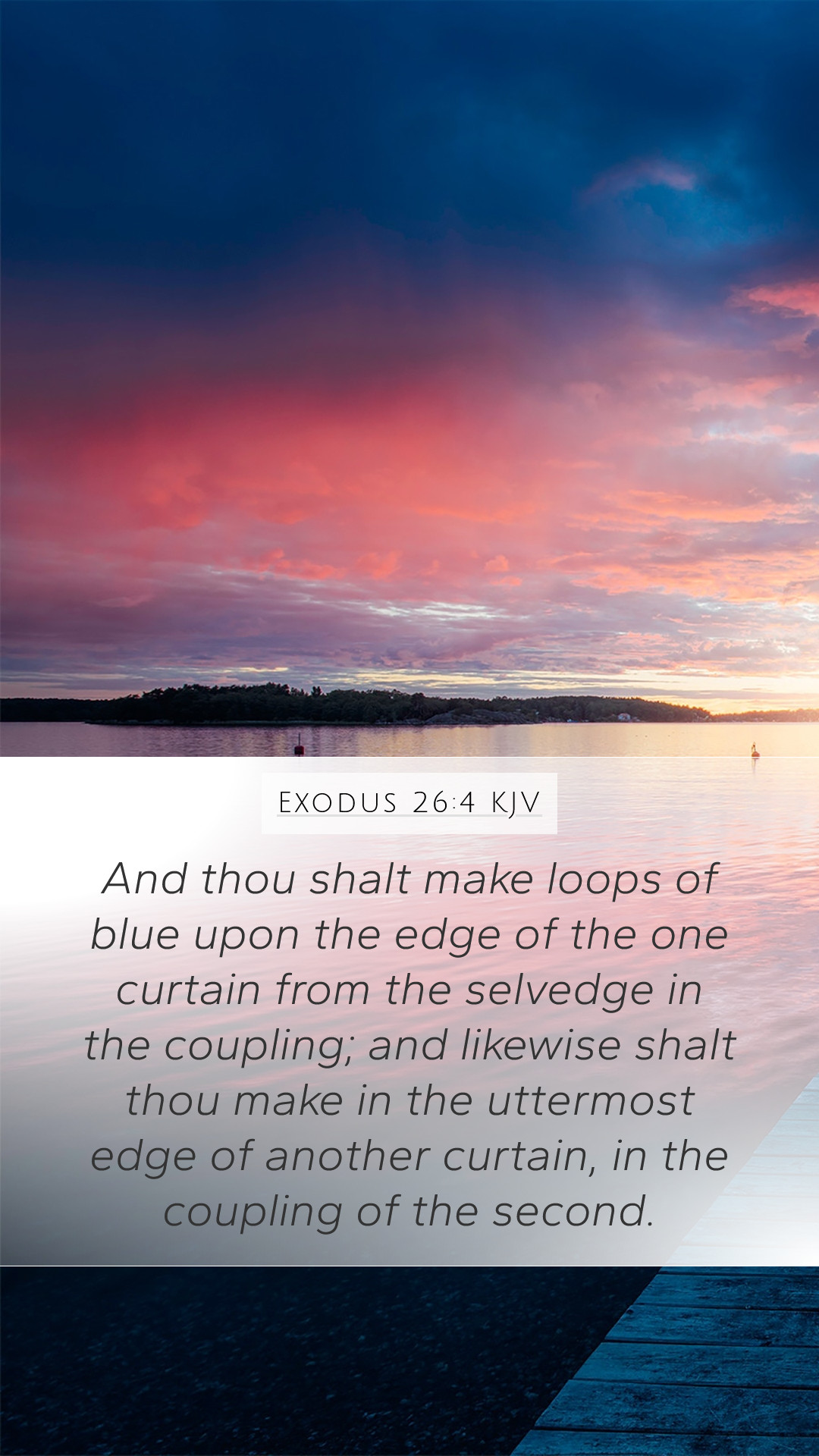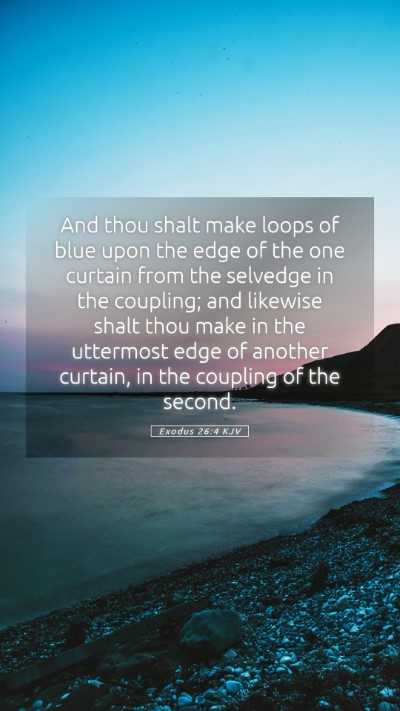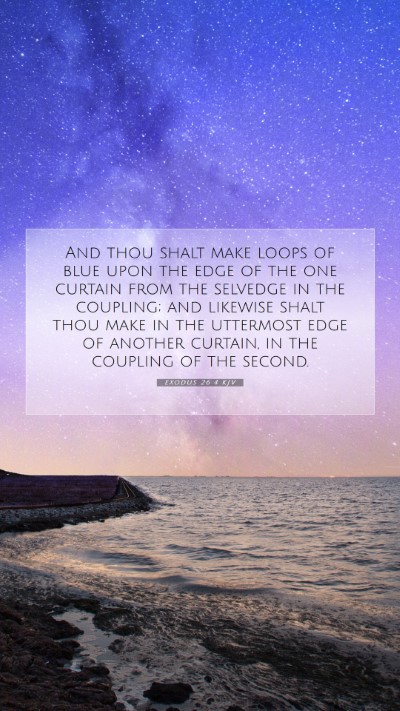Understanding Exodus 26:4
Exodus 26:4 states: "And you shall make curtains of goats’ hair for a tent over the tabernacle; you shall make eleven curtains."
This verse is part of the detailed instructions given to Moses for the construction of the Tabernacle, the sacred dwelling place for the presence of God among His people during their wanderings in the desert. The curtains mentioned here were made from goats’ hair, symbolizing humility and service. The specific number of curtains, eleven, holds significance in terms of completeness and God's meticulous design in His instructions to His people.
Commentary Insights
-
Matthew Henry's Commentary:
Henry emphasizes the functionality and materials of the tabernacle, noting that the goats’ hair was chosen for its practicality in providing warmth and protection. He connects this choice to the broader theme of God providing for His people, illustrating both His care and the necessity of covering that which is holy.
-
Albert Barnes' Notes:
Barnes points out the symbolism of goats’ hair in scripture, often associated with sin offerings or sacrifices. The coverings serve to protect the tabernacle, implying that what is sacred requires divine protection and acknowledgment of the need for atonement in approaching God.
-
Adam Clarke's Commentary:
Clarke notes the craftsmanship required in the curtains and their arrangement, indicating an order to the sacred space that reflects the character of God. He discusses how these coverings differentiate the holy from the profane, establishing boundaries that reveal God's holiness and the importance of reverend approach in worship.
Key Themes and Symbolism
The primary themes of Exodus 26:4 include the importance of divine instruction in worship practices and the symbolism of coverings, which represent protection and sanctity. The use of goats’ hair can also suggest humility, as these animals were common, highlighting that God chooses to dwell among His people, regardless of their state or status.
Application for Bible Study
This verse serves as an essential element in understanding the larger context of the Old Testament tabernacle. In Bible study groups, it can stimulate discussions on how God’s presence was physically manifested among the Israelites and can lead to deeper reflections on how believers today understand the presence of God.
Related Bible Cross-References
- Exodus 25:8-9 - Instructions for the Tabernacle's construction.
- Exodus 36:14-15 - Details about the materials used for the Tabernacle coverings.
- Hebrews 9:1-5 - A New Testament perspective on the significance of the Old Testament Tabernacle.
Conclusion
Understanding Exodus 26:4 provides insights into God's design for worship and His intention for His people to approach Him with reverence. This verse, while focusing on the physical structure of the tabernacle, also lays the groundwork for understanding the relationship between God and humanity, culminating in the ultimate fulfillment of His presence through Jesus Christ.


